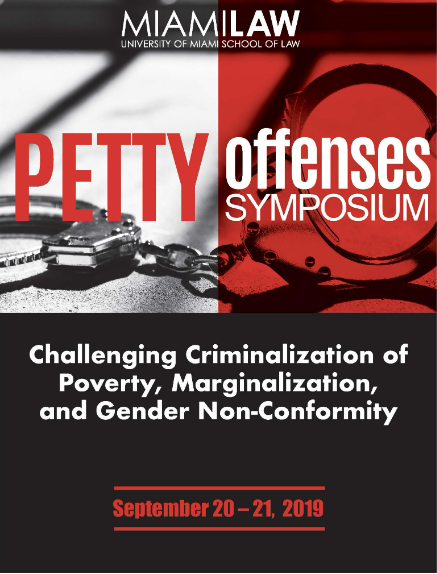Petty Offenses Symposium Report
Throughout the globe, petty offenses, such as loitering laws, are used to exert social control. They criminalize poverty, increase marginalization, and police gender norms. In the United States (“U.S.”) and locally in Miami, the use of petty offenses to criminalize poverty is also a critical issue where people experiencing homelessness regularly face the threat of criminal sanctions for fulfilling basic needs.
On September 20-21, 2019, the Human Rights Clinic of the University of Miami School of Law hosted a symposium focused on petty offenses and challenging the criminalization of poverty, marginalization, and gender non-conformity, in collaboration with the University of Miami Law Review, University of Miami Race and Social Justice Law Review, University of Miami School of Communication, National Law Center on Homelessness & Poverty and the Open Society Foundations’ Human Rights Initiative. The symposium connected advocates and scholars working on this issue around the world and provided an opportunity for the sharing of experiences and strategies in challenging petty offenses. Specifically, it explored the use of litigation; human rights advocacy at international, regional, national, and local levels; and creative campaigning. It drew on work from Ghana, Guinea, Guyana, Hungary, India, Israel, Jamaica, Kenya, Madagascar, Malawi, Nigeria, Sierra Leone, Uganda, and the U.S.

